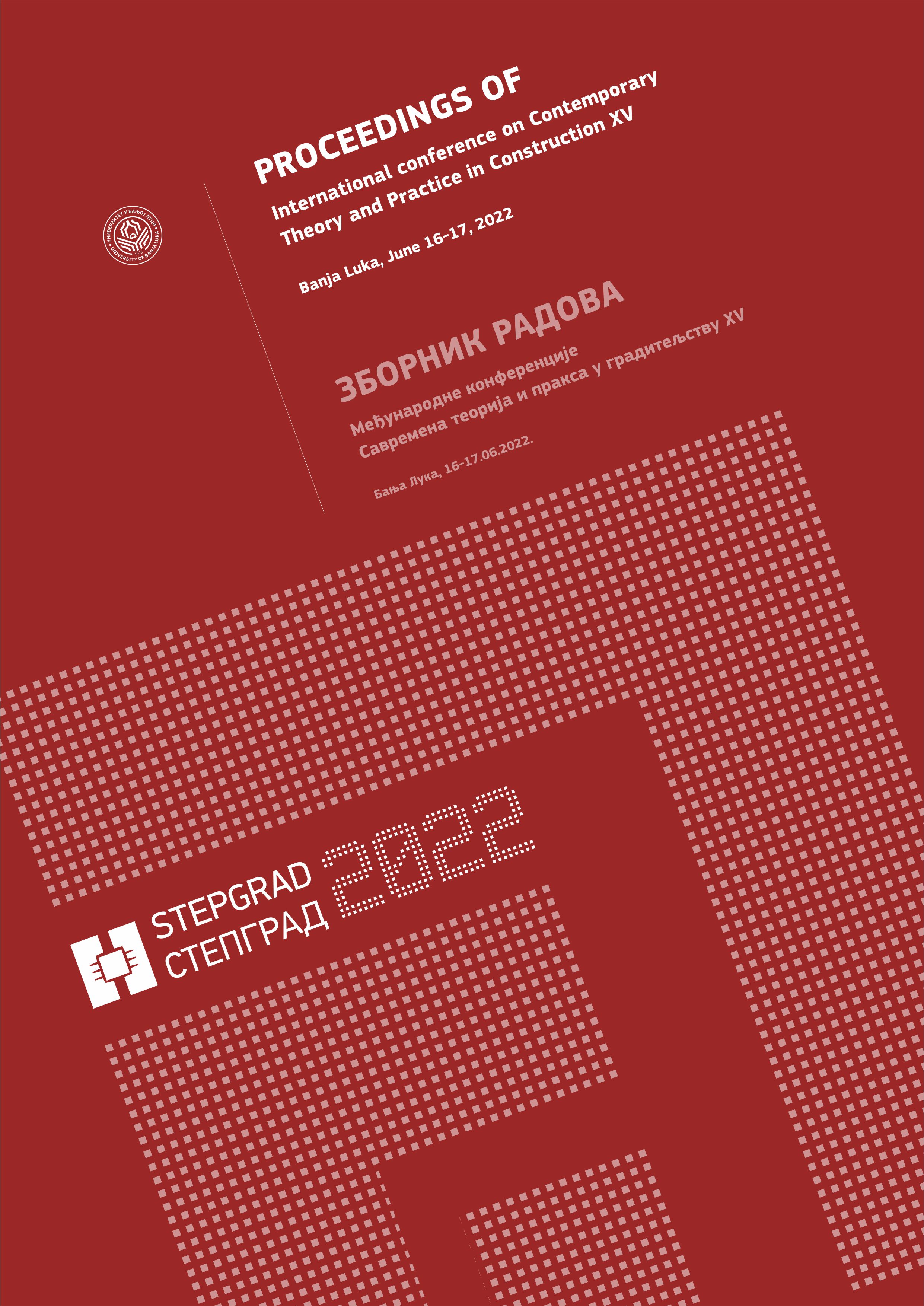HOUSING NATURE, REPRESENTING »NATURE«: ARCHITECTURE OF CONSERVATORIES, GREENHOUSES AND THEIR TRANS-PROGRAMMATIC SCIONS
DOI:
https://doi.org/10.7251/STP2215580SAbstract
Buildings intended specifically for growing plants – greenhouses, glasshouses, conservatories, orangeries and similar – represent relatively recent addition to the history and repertoire of architecture. In their three centuries of notable existence these structures managed to not only enable cultivation of climatically-exotic plants far away from their natural range, but also to form a particular genre of architecture, which developed through different phases, from high exclusivity to near irrelevance. Starting, not only from historical examples, but also form the general promise of enclosed ecologies, this paper aims both to analyze the phenomenon of greenhouse, as well as to propose directions for its possible further developments.
References
Diodorus Siculus. Bibliotheca Historica, Book II, section 2.2. Perseus Project, Tufts University. [On-line] Available: https://www.perseus.tufts.edu/hopper/text?doc=Perseus%3Atext%3A1999.01.0084%3Abook%3D9%3Achapter%3D1%3Asection%3D1
The national archives. Windows tax. [On-line] Available: https://www.nationalarchives.gov.uk/education/resources/georgian-britain-age-modernity/window-tax/
Woods M., Swartz Warren A., Glass Houses: History of Greenhouses, Conservatories and Orangeries. Aurum Press, London [1996]
Royal botanic garden Edinburgh, History of the glasshouses. [On-line] Available: https://www.rbge.org.uk/collections/living-collection/living-collection-at-the-royal-botanic-garden-edinburgh/glasshouses-history/
Grandmont Jean-Pol, CC BY-SA 3.0 licence
Jones WHS. Pliny natural history. Vol. VI. Cambridge, MA: Harvard University Press [1951]
Yoon, S. J.; Woudstra, J., "Advanced Horticultural Techniques in Korea: The Earliest Documented Greenhouses". Garden History. Vol. 35 (1): 68–84, January [2007]
Stein A., Virts N., The Conservatory: A Celebration of Architecture, Nature, and Light, Princeton Architectural Press, New York [2020]
Hegen Tom, Greenhouse series. [On-line] Available: https://www.tomhegen.com/collections/the-greenhouse-series
Farhangi, M., Turvani, M., Van der Valk, A., Carsjens, G. “High-Tech Urban Agriculture in Amsterdam: An Actor Network Analysis”, MDPI Sustainability, Vol. 12, 2020 (May 12), 3955.
Dujardin Filip, [On-line] Available: https://www.vanbergenkolpa.nl/en/552_rooftop_greenhouse_agrotopia.html
Beyers R. J., Odum H. T., Ecological Microcosms, Springer, New York. [1993]
Nelson M., Pushing Our Limits: Insights from Biosphere 2, University of Arizona Press, Tucson. [2018]
Mollison B., Permaculture Two, Tagari, Sister Creek, [1982]
Todd N. J., Todd J., From eco-cities to living machines: principles of ecological design. North Atlantic Books, Berkeley, California. [1994]
Roesler S., “On Microclimatic Islands”, Les Cahiers de la recherche architecturale urbaine et paysagère, 6 | 2019, [Online] Available: http://journals.openedition.org/craup/2712 [accessed 29 December 2019]
Unknown author. Public domain, Claude Villetaneuse personal collection.
Saudan-Skira S., Saudan M., Orangeries. Palaces of Glass - Their History and Development, Tachen, Köln, [1998]
Evans Benjamin, public domain.
Grimshaw N., The Eden Project promotional video. [On-line] Available: https://grimshaw.global/projects/the-eden-project-the-biomes/
Matern Jürgen, Creative Commons_licence_BY-SA 2.5
Norman Foster Foundation Archives. [On-line] Available: https://archive.normanfosterfoundation.org/workspace_and_bonding/es/consulta/registro.do?id=5808
Lewis P., Tsurumaki M., Lewis D. J., Manual of Section, Princeton Architectural Press, New York, [2016]

